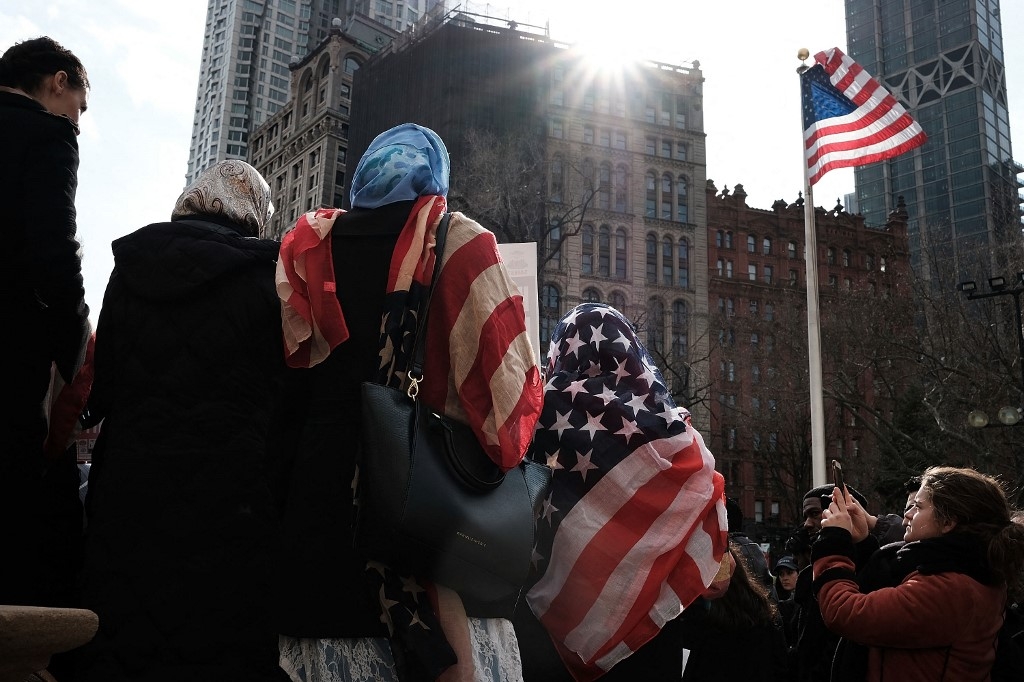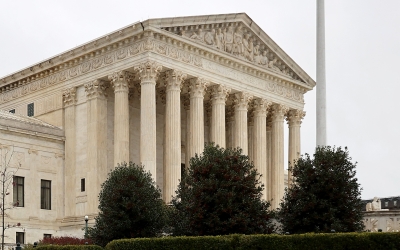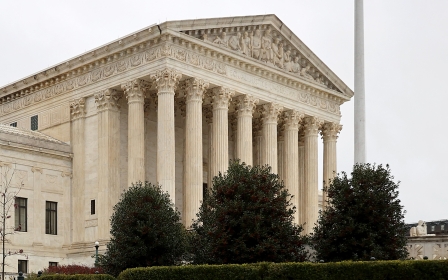Muslims removed from 'no-fly list' after filing lawsuits

Muslims who challenged the constitutionality of the "no-fly list" were removed from it after they sued the government, prompting concerns that the programme wants to evade legal scrutiny.
“The government removes people from their secret lists only when they fear that a court might impose restraint on their lawlessness,” Gadeir Abbas, an attorney with the Council on American-Islamic Relations (Cair), told the Washington Post.
New MEE newsletter: Jerusalem Dispatch
Sign up to get the latest insights and analysis on Israel-Palestine, alongside Turkey Unpacked and other MEE newsletters
“If the Federal Bureau of Investigation (FBI) has its way, delisting a person will become a kind of cheat code the federal government can use to deny people their day in court.”
The no-fly list is a small subset of the US government Terrorist Screening Database, which is also known as the terrorist watchlist. The list is said to contain identifying information of “known or suspected terrorists”. The FBI’s Terrorist Screening Center maintains the database.
In 2015, the US Justice Department said Americans could find out whether or not their names appear on the list.
As part of a lawsuit filed in Oregon by the American Civil Liberties Union, a federal judge ruled in 2015 that the "government’s lack of effective procedures for people to challenge their inclusion on the controversial list was unconstitutional", the Post reported.
Since September 11, hundreds of Muslims have been placed on this list. Cair has seen eight such cases of those who were removed from the list once they sued the federal government - making it impossible for the court to hear their concerns.
According to the Washington Post, Saadiq Long, a Muslim convert and veteran, was strip-searched at an Amsterdam airport, arrested in Turkey, banned from two Persian Gulf states, and fired from a trucking company. This took place in a span of nine years. And when he believed it was because of being placed on the no-fly list, he filed a lawsuit in Virginia. In 2019, when the lawsuit was moving forward, he was notified that he had been removed from the list.
Middle East Eye reached out to the Department of Homeland Security and the FBI for comment but neither provided one. The FBI said they were declining to comment.
Suing for violation of religious freedom
Muslims have long fought against the use of the no-fly list, as it deprives people of their ability to travel without presenting evidence against them.
In 2020, the US Supreme Court ruled that Muslim Americans who were placed on the FBI's no-fly list after refusing to spy on their communities were allowed to sue individual FBI agents - who allegedly violated their religious freedom - for monetary compensation and damages.
In a unanimous decision, the court ruled in favour of lead plaintiff Muhammad Tanvir, a legal permanent resident of New York from Pakistan, who refused to spy on his Muslim community and was put on a travel blacklist as a result.
After refusing the FBI's requests to spy on their Muslim communities, Tanvir and two others found out they were unable to board flights. The FBI had told the individuals that they would be removed from the no-fly list once they agreed to work for the bureau.
Middle East Eye delivers independent and unrivalled coverage and analysis of the Middle East, North Africa and beyond. To learn more about republishing this content and the associated fees, please fill out this form. More about MEE can be found here.





